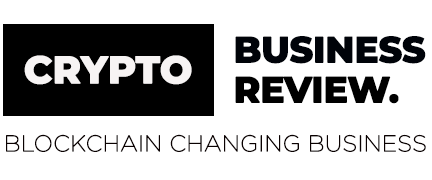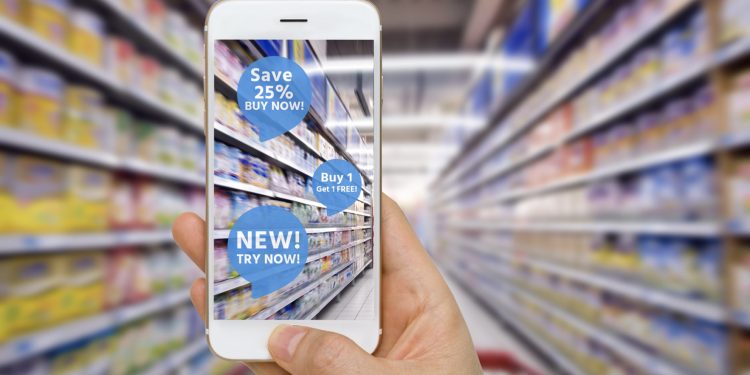Those who work in the bowels of retail warehouses and supply rooms don’t get enough credit. Managing endless incoming and outgoing inventory is no easy job. But companies investing in blockchain-powered inventory management systems are doing these employees a solid.
Supply chain and inventory management are among the most obvious applications for blockchain technology in retail. Knowing where an item is at any given time drastically reduces the chance of theft or property loss. The fact that blockchain-powered ledgers are remotely accessible by management, warehouse workers, and store employees alike is a cherry on top. Inventory managers and their underlings will still have to do the heavy lifting, but blockchain will alleviate headaches in the logistics department.
Experts also point to the potential for cryptocurrency payment systems to expand customer bases. When businesses adopt crypto-friendly payment gateways for physical and digital storefronts, they attract a new customer class.
These benefits may not be enough to spark investment from most retailers. But as the technology becomes more familiar and the benefits become more apparent, the case for investing in retail-centric blockchain systems will only get stronger.
1. Kristen Howell, Partner at Fox Rothschild
“Blockchain often seems cloaked in secrecy, with its origins in cryptography. However, one of its best use cases is for improving transparency. From reducing counterfeit goods (LMVH), to supporting emerging markets (Onda Origins), to engaging with consumers beyond the point of sale, private blockchain offers meaningful transparency for manufacturers, the shopping public, and retailers.”
2. Michael Dobak, CMO of BLOCKv
“The blockchain has several key benefits for promotional marketing within retail. One particular benefit is improved measurement of campaign performance and a new channel for direct one-to-one engagement before, during and after making a purchase.”
3. Alexander Kuzin, Co-Founder of EVEN Foundation
“An increase of cryptocurrency users will expand the retail market. Goods and services available online only will find additional customers. The same is true for financial retail – crypto loans, escrow, transborder transfers. Online payment vs payment on delivery expands delivery options and increase conversion rates for e-commerce.”
4. Jitin Agarwal, VP, Enterprise Products, EPAM
“While the five key benefits of blockchain are immutability, accessibility, encryption, transparency and governance, the most important benefit for retail is transparency, as it applies to all members of the supply chain from the manufacturer and distribution channel, to the retailer and end consumer. Transparency ensures that everyone in the value chain has the trust and confidence in the goods and services being delivered, which is arguably the core of the end-user experience that is the key differentiator in standard retail today. Incidentally, transparency also has multiple subsequent benefits, including fraud and counterfeit prevention, document management digitalization and customer loyalty.”
5. Morvareed Z. Salehpour, Esq., Managing Partner of Salehpour Legal Consulting
“The biggest benefit from application of blockchain technology in the retail space is that supply chain applications not only reduce illness and injuries from defective foods and products given the enhanced speed of identifying and locating those defective foods/products, but also help retail businesses save costs and increase efficiencies as only truly affected goods/products would have to be recalled rather than a more generalized recall. Further, supply chain blockchains give businesses using them a competitive advantage not only in terms of lower costs for recalls, but also in terms of better public image arising from the transparency created in their supply lines.”
6. Antony Welfare, Group Managing Director, Luxoft and DXC Technology Blockchain Practice
“Successful retail is about customer service and loyalty, both of which are strengthened by the trust and transparency that blockchain brings.”
7. Stefano Covolan, Founder of Korporatio
“Cryptos don’t follow one specific country, no swift system as for banks, no exchange fees between currencies. In general there is a lot of savings that can be made there. A system where a person is capable of using crypto for majority of their things can result in big savings. The model also allows to fight money laundry even if a lot of people still don’t see it in the same way.”
8. Nikki Baird, Vice President of Retail Innovation at Aptos
“Supply chain use-cases took off first because of the benefits in those applications. Supply chains depend heavily on cross-border situations where smart contracts could address current processes that are dependent on a lot of paperwork, letters of credit, escrow accounts, multiple currencies, and increasing governmental requirements around visibility into ports of origin, cargo contents, and general supply chain visibility.”
9. Giri Tatavarty, VP of Data Science at 84.51°
“The privacy of blockchain is backed by hard math and not by proprietary code and systems that have not been reviewed. Blockchain puts the consumer in control of his data assets and cuts out the middleman. This maximizes the value of data for both the companies as well as the consumer.”
10. Alexandra Zelenko, Marketing and Technical Writer at DDI Development
“It is a fact that retailers record, store and utilize vast amounts of customer data regularly. Harnessing the power of blockchain technology could improve security, give customers more control over their data, and help retailers to meet consumer wants and needs.
With a blockchain data-sharing system in place, customers could also proactively let retailers know about their preferences, sending them shopping lists in the form of smart contracts. What’s more, combined with the potential of IoT, blockchain could become a fundamental infrastructure to fully automated shopping.”
Original text: https://www.disruptordaily.com/benefits-of-blockchain-in-retail/
















